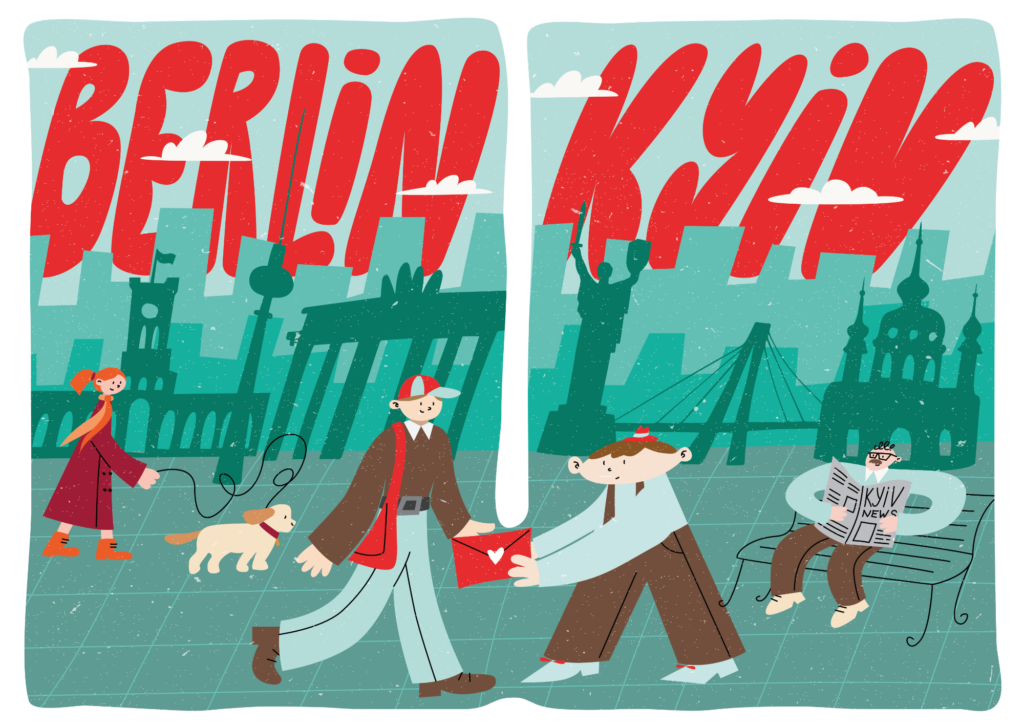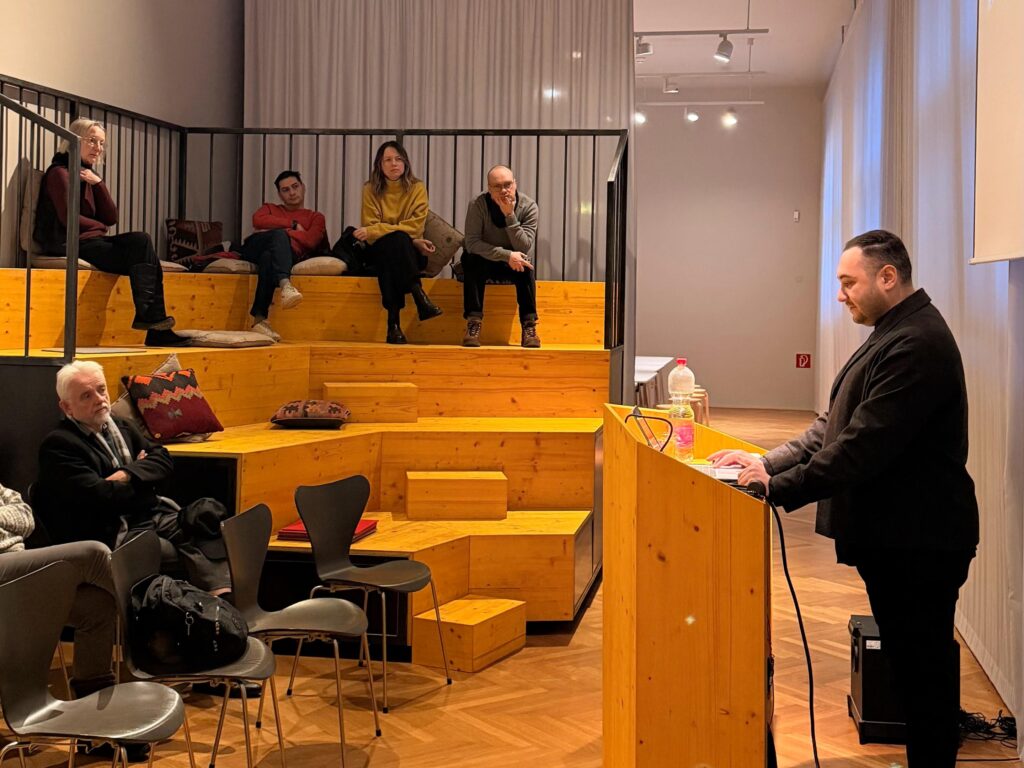City partnership between Kyiv and Berlin

Partnership of two exceptional cities
Berlin and Kyiv, both cities are internationally recognized for their pursuit of freedom and democracy. Berlin became a symbol through the Berlin Airlift, the East German Uprising, and ultimately the Berlin Wall, which represented the division of Germany, Europe, and the world into East and West for decades, with its fall marking the end of the Cold War. Kyiv, in turn, became a symbol with the Euro-Maidan protests, and now with the defense against the Russian invasion. In a time when hard-won societal values such as freedom, democracy, and self-determination are being questioned by some, these two cities inspire confidence and hope. The partnership between Berlin and Kyiv bridges the gap between a city that played the role of a frontline city of the free world during the Cold War and one that holds a similar significance today. And it bridges the gap between two cities facing crucial decisions – about the future of European integration and the course of European history.
But there is more than just the fateful history that connects Berlin and Kyiv: Their shared commitment to innovation and cosmopolitanism has fostered longstanding connections and collaborations between their vibrant civil societies, creative and artistic scenes, and numerous startups. For many displaced Ukrainians, these connections were a driving force to seek refuge in Berlin. The city partnership between Berlin and Kyiv is an opportunity for both cities.
Workshop with civil society actors from Kyiv and Berlin
Together with the Kyiv Office of the Konrad-Adenauer Foundation and with the kind support of the Berlin Senate Chancellery, we are organizing a workshop to network the civil societies of Berlin and Kyiv against the backdrop of the emerging city partnership. In mid-February, relevant stakeholders from Kyiv and Berlin will come together in Berlin for three days.
The workshop not only aims to strengthen networking but also involves substantive work. Key themes will be identified during the workshop, where the civil society of both cities sees cooperation as a priority, and efforts will be made to assess the extent to which the public administrations of both cities can support these efforts.



